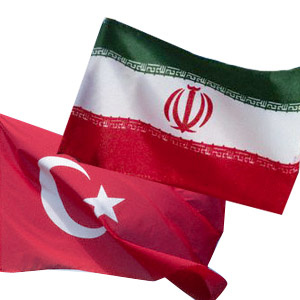Israel’s Absence, Turkey’s Presence: Iran’s Opportunity
Turkey’s presence at the Nuclear Security Summit is a boon for Iran. Asadollah At-hari, Turkey affairs analyst

Unexpected news? Israeli Prime Minister Benyamin Netanyahu has decided to not attend the Nuclear Safety Summit held in Washington this week, and instead send a lower-level delegation. What is behind Netanyahu’s decision? One probable reason for his absence is the presence of regional rivals Egypt and Turkey. As Israel might speculate, the two may grasp the opportunity to create an anti-Israel atmosphere at the conference by diverting the focus towards Israel’s nuclear arsenal and its policy of nuclear ambiguity.
The rift between Israel and the United States has also discouraged the sexagenarian from traveling to Washington. Unlike most past American presidents, Obama doesn’t seem to see Israel’s appeasement as his most favorable foreign policy option. Many observers believe we are now witnessing a real low point in Tel Aviv-Washington ties. The problem seems to be rooted in priorities of each country. While Israel is worried about Iran’s nuclear technology, for the White House resident reaching a solution on the issue of Palestine and advancing the Middle East peace process is perhaps more important. Absence may also be Netanyahu’s way to pressure the Americans and to expose the problems between them.
The differences shouldn’t be taken seriously, though, despite stormy days in U.S.-Israel relations and Netanyahu’s cranky manner. The United States is Israel’s strategic ally after all, and will always be committed to Israel’s security, as both President Obama and Secretary of State Hillary Clinton have repeatedly said.
Turkey, on the other hand, will attend the conference with a high-ranking delegation headed by Prime Minister Recep Tayyip Erdogan and including Foreign Minister Ahmet Davutoglu. For two reasons Turkey’s presence could actually turn into an opportunity for Iran. Firstly, Erdogan may repeat his recent years’ typically tough remarks against Israel in the conference, thus diverting attention from Iran’s nuclear program. Moreover, Ankara supports Iran’s nuclear program, and the Turks could conceivably convince their American hosts to allow them to broker talks between Tehran and Washington.
Turkey is now a non-permanent member of the United Nations Security Council and this has made reinforcement of relations with Ankara—a key regional state, NATO member, EU membership candidate, member of the Non-Aligned Movement and Iran’s Muslim neighbor—a priority for Iran
Under the current circumstances, Iran may find the Turks much more reliable allies as compared to the Arabs. Ankara’s support for Iran’s nuclear program has been significant and effective. Its regional and international status will help set the balance between Iran and West, and it can also moderate the U.N. Security Council position towards Iran.
The rift between Israel and the United States has also discouraged the sexagenarian from traveling to Washington. Unlike most past American presidents, Obama doesn’t seem to see Israel’s appeasement as his most favorable foreign policy option. Many observers believe we are now witnessing a real low point in Tel Aviv-Washington ties. The problem seems to be rooted in priorities of each country. While Israel is worried about Iran’s nuclear technology, for the White House resident reaching a solution on the issue of Palestine and advancing the Middle East peace process is perhaps more important. Absence may also be Netanyahu’s way to pressure the Americans and to expose the problems between them.
The differences shouldn’t be taken seriously, though, despite stormy days in U.S.-Israel relations and Netanyahu’s cranky manner. The United States is Israel’s strategic ally after all, and will always be committed to Israel’s security, as both President Obama and Secretary of State Hillary Clinton have repeatedly said.
Turkey, on the other hand, will attend the conference with a high-ranking delegation headed by Prime Minister Recep Tayyip Erdogan and including Foreign Minister Ahmet Davutoglu. For two reasons Turkey’s presence could actually turn into an opportunity for Iran. Firstly, Erdogan may repeat his recent years’ typically tough remarks against Israel in the conference, thus diverting attention from Iran’s nuclear program. Moreover, Ankara supports Iran’s nuclear program, and the Turks could conceivably convince their American hosts to allow them to broker talks between Tehran and Washington.
Turkey is now a non-permanent member of the United Nations Security Council and this has made reinforcement of relations with Ankara—a key regional state, NATO member, EU membership candidate, member of the Non-Aligned Movement and Iran’s Muslim neighbor—a priority for Iran
Under the current circumstances, Iran may find the Turks much more reliable allies as compared to the Arabs. Ankara’s support for Iran’s nuclear program has been significant and effective. Its regional and international status will help set the balance between Iran and West, and it can also moderate the U.N. Security Council position towards Iran.

